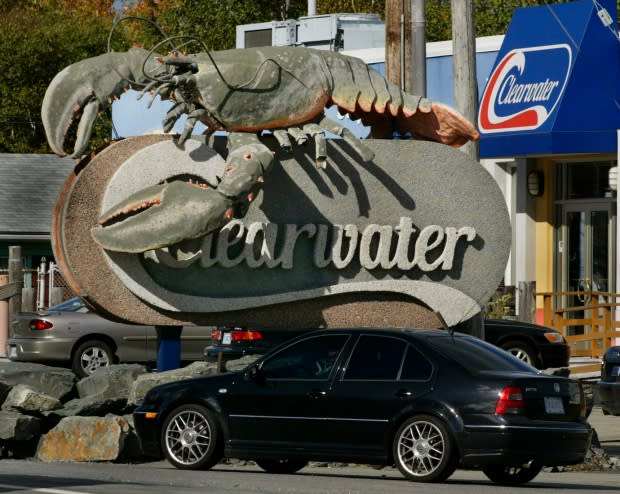Clearwater pulls plug on storing lobster traps at sea
North America's largest shellfish producer, Halifax-based Clearwater Seafoods, says it has stopped storing lobster traps at sea.
Clearwater's practice of leaving thousands of pots on the ocean floor for weeks at a time earned it a conviction for a "gross violation" of Canadian fishery rules.
The company's decision to eliminate the practice comes amid increased scrutiny of its offshore Nova Scotia lobster fishery, including an audit by the influential Marine Stewardship Council.
The seafood sustainability certification body said Friday a third-party audit of Clearwater's offshore lobster fishery is being moved up by two months to include a review of the company's conviction.
Actions considered a 'gross violation'
The audit will be carried out by Acoura, a company that has consistently certified the Clearwater East Coast Canada offshore lobster fishery as sustainable. Results will be released publicly in June and could affect Clearwater's offshore lobster Marine Stewardship Council certification.
Last month, CBC News reported Clearwater was convicted in September 2018 for storing 3,800 lobster traps off the coast of Nova Scotia for nearly two months in 2017.
Canadian fisheries regulations require gear to be tended every 72 hours to prevent unintended catches of lobster and other species.
The company's conduct was called a "gross violation" by the Crown.

The offence was made worse because in 2016, Clearwater had been repeatedly warned by the Department of Fisheries and Oceans to stop storing traps on the ocean floor. The explicit warnings followed a two-year review of Clearwater's offshore fishery.
Clearwater has previously said Canada's 72-hour rule is impractical and has never been enforced in the offshore lobster fishery. DFO admits it is looking at changing the rule to provide more flexibility, but Clearwater does not have an exemption.
'We've eliminated that practice'
On Friday, Clearwater's vice-president of sustainability said the company has responded to DFO's enforcement actions.
"Certainly we've been engaged with discussions with DFO on an ongoing basis and we have reacted to concerns that they've raised around what had been a long-standing practice of storing gear at sea. And we've said we've since eliminated that practice," Christine Penney told CBC News.
Penney said the incidents in 2017 leading to its guilty plea were the result of "unforeseen issues" and the company had already stopped leaving traps in the water.
Clearwater said it asked for the early audit which it expects to clearly vindicate its fishery.
Audit responding to compliance questions
After CBC News reported the conviction, the Ecology Action Centre in Halifax complained to the Marine Stewardship Council and to Acoura.
On Friday, Acoura said it must review "recent compliance circumstances promptly."
"This audit will include a full review of the circumstances surrounding the convictions against Clearwater Seafoods from DFO that have been brought to our attention. Additionally, all relevant data and the fishery operations will be reviewed."
The monopoly
Clearwater has exclusive rights to Lobster Fishing Area 41, which starts 80 kilometres from shore and runs to the 200-mile limit, extending from Georges Bank to the Laurentian Channel between Cape Breton and Newfoundland.
The company fishes entirely off southern Nova Scotia.
Unlike every other lobster fishery, there is no season and Clearwater has been awarded a quota of 720 tonnes, which it says represents about 15 percent of all lobster it sells.
MORE TOP STORIES

